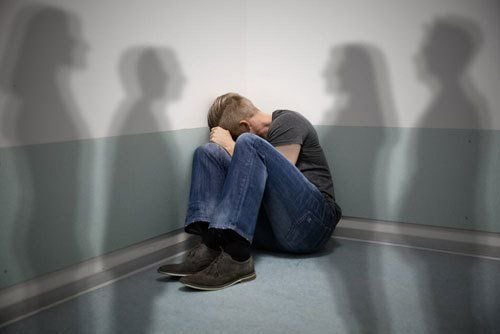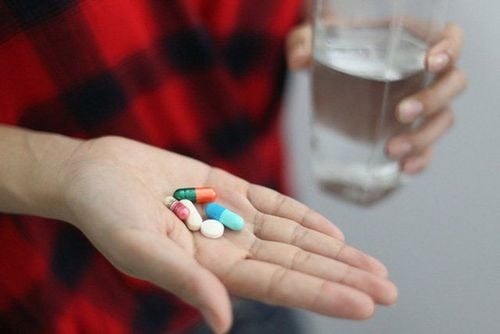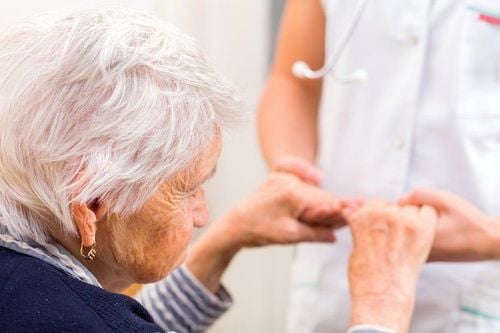This is an automatically translated article.
Crowd fear syndrome (also known as agoraphobia, fear of public places) significantly affects the quality of life of the unfortunate sufferer. The later the intervention, the more difficult the agoraphobia (as with other mental health disorders) to treat, and the more limited the outcomes. So how is the fear of crowds overcome and treated?1. What is agoraphobia?
Crowdphobia (also known as agoraphobia, agoraphobia) is a type of anxiety disorder in which sufferers feel such fear that they have to avoid places, situations that can cause panic, feelings of being trapped, confused, or hopeless. People with agoraphobia will be fearful even in very routine activities or situations, such as taking public transport, entering an enclosed or open space, standing in line, or going forward. near a crowd.If the anxiety disorder is already advanced, it can be very difficult to get rid of or interfere with the fear caused by the anxiety disorder. Most of the time, agoraphobia occurs after the sufferer has experienced one (or more) panic attacks. People with agoraphobia are always afraid of falling into a panic again, so they always try to avoid places where they think the situation is likely to happen.
2. Diagnosis of agoraphobia
Crowdphobia is diagnosed based on:Signs and symptoms. In-depth visits with a therapist and/or mental health professional. Do a physical examination to find out any medical conditions (if any) that may be causing the symptoms. The diagnostic criteria for agoraphobia are listed in the Diagnostic and Statistical Manual of Mental Disorders (DSM-5), published by the American Psychiatric Association.

Thăm khám chuyên sâu với bác sĩ chuyên khoa và/hoặc chuyên gia sức khỏe tâm thần để được chẩn đoán hội chứng sợ đám đông
3. Treatment of agoraphobia
Treatment of agoraphobia often combines medication and psychotherapy. Treatment can take time, but it will make the person feel better.3.1 Psychotherapy Psychotherapy with a professional will help people with agoraphobia set goals and learn practical skills to reduce anxiety symptoms. Cognitive behavioral therapy (CBT) is one of the most effective methods of psychotherapy for anxiety disorders in general and agoraphobia in particular.
Usually for short-term treatment, cognitive behavioral therapy focuses on teaching patients specialized skills to better tolerate anxiety, face fears, and gradually return to anxiety. activities that had always been avoided before. Through this process, symptoms will gradually subside as the patient begins to achieve successes.
Patient can learn:
Panic triggers, panic symptoms and conditions that make them worse. How to tolerate and cope with anxiety symptoms. How to deal with fear. Anxiety will be gradually reduced if the patient dares to face it and control it. If the condition is so severe that the patient does not dare to leave the house to see a doctor, the doctor can be invited to his or her own home (at least in the early stages of treatment), or ask relatives and friends to take the patient to the doctor.
3.2 Medications Some antidepressants are commonly used to treat agoraphobia, and sometimes anti-anxiety medications are also used, but more sparingly. For the treatment of agoraphobia, antidepressants are more effective. The most commonly used antidepressants are fluoxetine (Prozac) and sertraline (Zoloft). In addition, other antidepressants are also effective and may be indicated.

Một số thuốc chống trầm cảm thường được sử dụng để điều trị hội chứng sợ đám đông
At the beginning and end of treatment with an antidepressant may cause undesirable effects such as discomfort or even the appearance of symptoms of a panic attack. Therefore, when starting treatment, the doctor will gradually increase the dose of the drug, and when it is near the end of treatment, the doctor will gradually reduce the dose, to avoid unwanted effects.
If you have anxiety when going out or have had a panic attack, go to the doctor and get treatment right away, don't let the situation get worse. The later the intervention, the harder it is to treat anxiety disorders (as well as other mental health disorders), and the more limited the outcomes.
Please dial HOTLINE for more information or register for an appointment HERE. Download MyVinmec app to make appointments faster and to manage your bookings easily.
Article referenced source: mayoclinic.org












